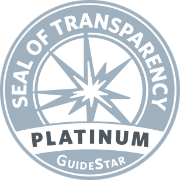July 18th is World Listening Day—this year, the theme is Unquiet Earth, focusing on improving listening skills and conserving critical soundscapes. The ideal of critical soundscapes is an interesting one and makes sense. The world is, for the most part, a busy, loud place. Many of us spend all day consuming sounds of one kind or another, in the form of news, TV, social media, music, and voices of colleagues, family, and friends. Yet, in this world with so much noise, how do we find the time to really listen? What does it mean to listen? And what does listening have to do with service?
In 2019, Multiplying Good embarked on a project run by our partners at The Edward M. Kennedy Institute with support from The Annenberg Foundation. In progress today, the project, Civic Conversations, is all about creating the tools and skills to help adults working with youth have and facilitate challenging conversations about things that matter, inside and outside of the classroom. With expertise from Essential Partners, an expert in dialogue, Multiplying Good facilitated the first of two 45-minute trainings with the adult advisors who partner with us to support our Students In Action teams across the country this past winter. The training gave advisors an overview of the tools they would need to do this work well and helped them practice a critical skill—listening.

It turns out, one of the most important pieces of dialogue is not talking but listening. And not just any listening. Indeed, there are two very different ways of listening—listening to understand and listening to respond.
When we listen to respond, we may ask questions intended to persuade someone to change their mind, that they are wrong, or that the consequences of their beliefs would be bad.
Questions of persuasion sound like this:
- Why don’t you…? Don’t you think you should?
- Isn’t it true that…?
- Why do you even care about that anyway?
When we listen to understand, we are motivated to know more about someone and their beliefs.
Questions of understanding sound like this:
- What was it like?
- Can you describe it more?
- How did this change the way you see the world?
- What did you learn?
Service work, when done well, is about, by, and of the community. For example, Valley Changemakers, an SIA team out of LA, spent the last year doing deep research about how to best support conservation of the Sepulveda Basin, they engaged in clean-up, educated residents and youth, and created brochures to help visitors understand the various plants and species. This project, or really, set of projects, does what great service does. It reflects a communities' needs and leans into the assets communities have on hand to address them. When done well, at the root of service is excellent listening.
Listening also shows up in other places in a service journey. Often, service uncovers or unpacks challenging topics on which people disagree, which is another time listening comes into play. The team at Fishers High School in Indiana displayed this skill of listening when deciding what to focus on this past year. Following an impassioned debate about the point of equity education, the team recognized the need to educate fellow community members about what equity is and isn’t and why it is nothing to be afraid of through the creation of a podcast, ‘You Broke it, Let’s Fix it’.

But while listening may sound easy, the reality is that it doesn't exist in a vacuum. To have a dialogue about something hard, we also must set up the conditions to make it possible, that includes preparing, ensuring buy-in and readiness to engage, creating a structure that fosters a sense of safety and interrupts problematic patterns of communication, supporting inquiry, being intentional about omni-partial facilitation and embedding reflection. These are the tools Multiplying Good is training its adult advisors and staff on through the Civic Conversation project.
And so, on this World Listening Day, Multiplying Good invites you to think about how you are embedding these tools in your life, work, and service. We invite you to reflect and imagine how the world could be different if we all had the skill of asking great questions and listening to understand rather than respond or react.

